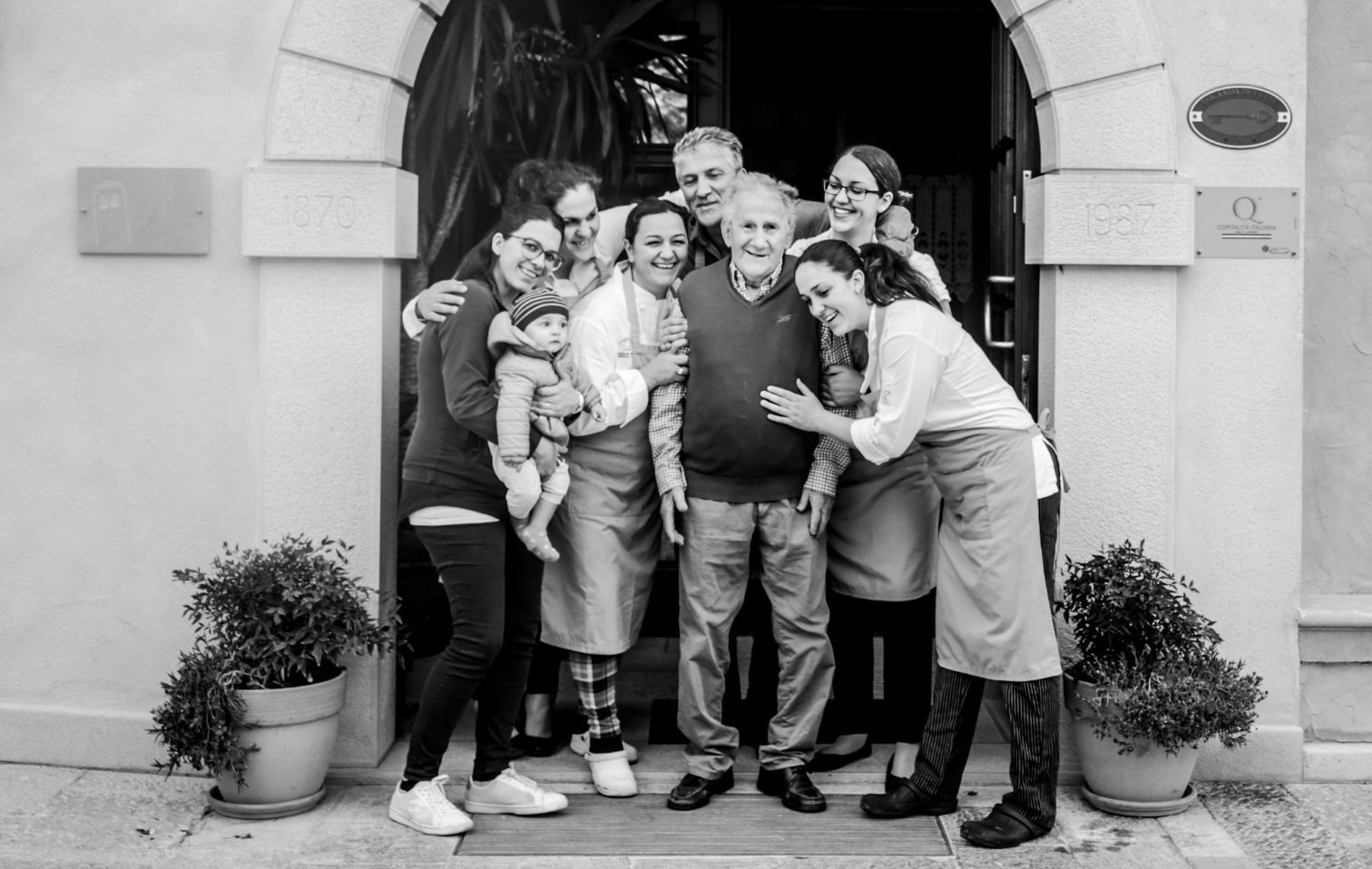Lokanda Devetak, documented since 1870, is a unique place to relive the history and atmosphere of a borderland. Humble yet memorable dishes, paired with an extensive award-winning wine cellar.
The Inn's story
"Karstic" in the dictionary refers to what originates from the Karst, a border area of our Friuli, sometimes Italian, sometimes Slovenian over time, echoing historical battles in the bunkers along the roads. A celebration of biodiversity amidst the stones, thanks to underground water, with sinkholes that open up like Heideggerian clearings. But metaphorically, the word also stands for what sinks and then resurfaces unexpectedly, yet remains ever-present, pulsating invisibly somewhere deep.
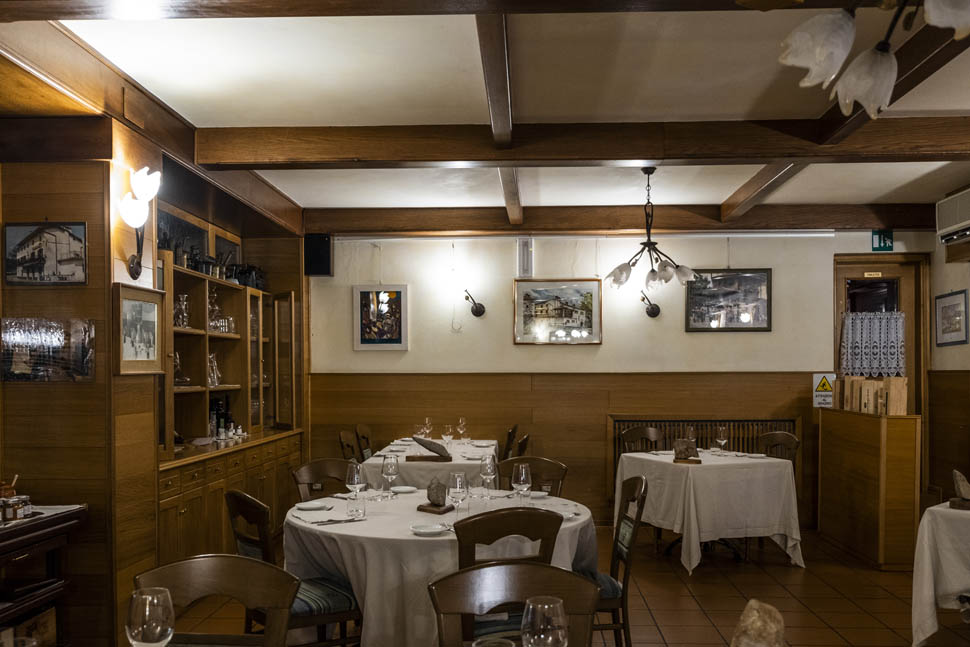
Perhaps there's nothing more "Karstic '' than Lokanda Devetak, a place that in various ways, since 1870 (and even earlier), keeps this fascinating strip of land and rock alive. Here in San Michele, a hamlet of just 250 souls where a crucial battle of the Great War took place, commemorated by a museum, there's an extra reason to stay amidst the folds of history. It all began when Ivan Devetak, a "šušter" by profession (a cobbler, like his father and grandfather), had a brilliant idea: to serve a glass of wine and a slice of salami in his workshop turned hut to those awaiting repairs, with the help of his wife Marija. This atmosphere can still be relived today in the spaces of the small tavern with a dozen seats, now only open during village festivals, where one corner holds the old tools of the last Devetak cobbler, Uncle Remo, as a small museum.
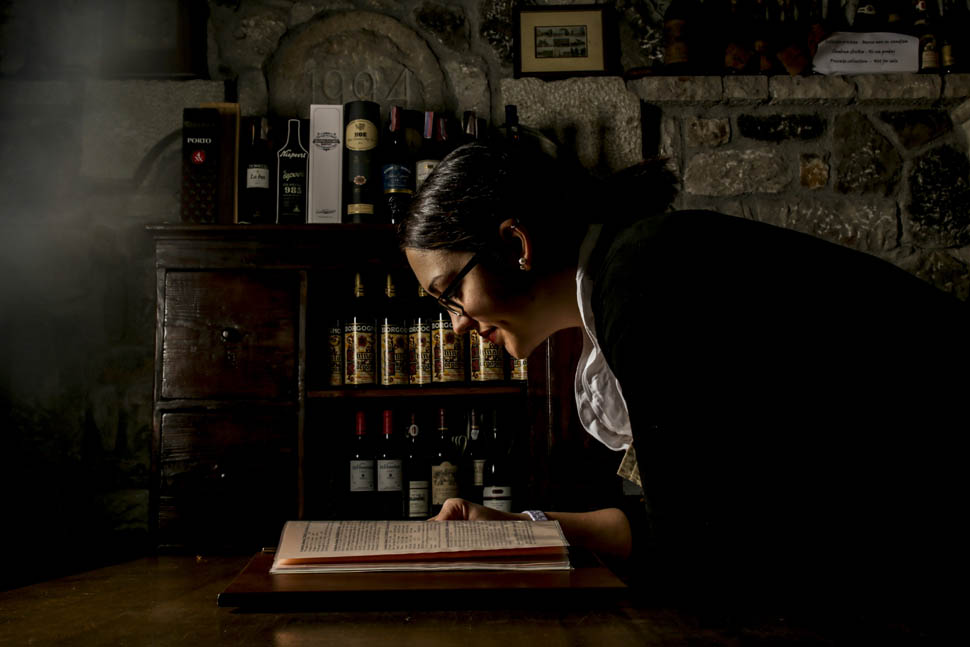
The establishment's registration in the bureaucratic records of the Habsburg Empire dates back to 1870, then the offerings gradually change, with daughter-in-law Marijana starting to serve some hunted birds and a chicken from the coop, "baccalà" (salted cod) and "selinka," a typical Karst soup. The hut transforms into a stone house with a "lose" roof, while laborers rush to work in the stone quarries, also exploited for the Milan train station. At San Michele, the train for fishermen arrives, followed by paved roads, electricity, telephone lines, and the aqueduct. In June 1968, the first television in the village was turned on in the tavern.
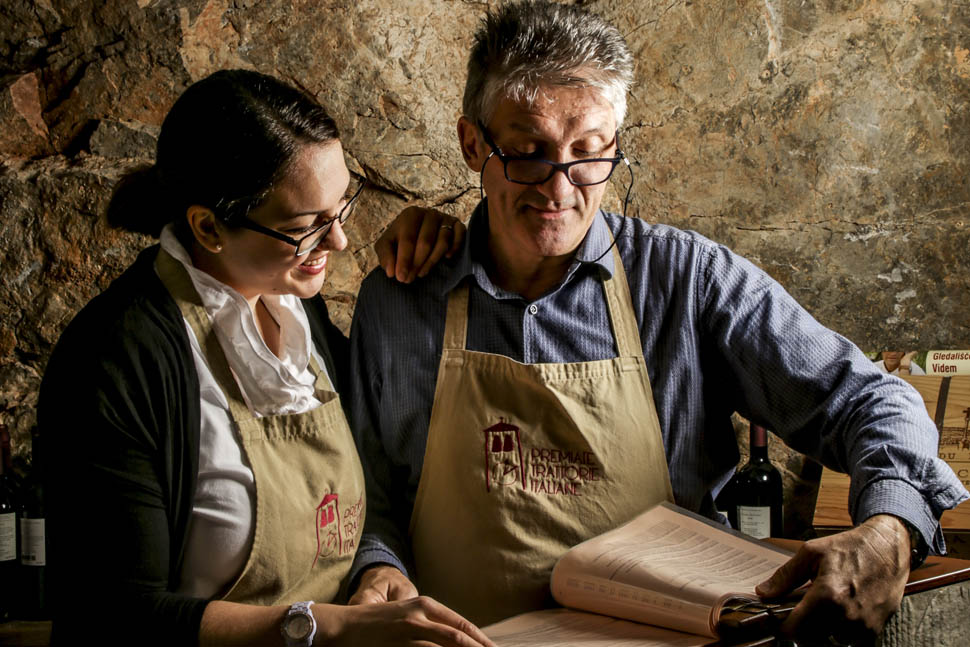
Traditions evolve and the young generation rebels, but on September 25, 1982, the last wedding in the village according to old customs took place. The couple, Uštili Devetak and his wife Gabriella, originate from a neighboring Italian-populated town. Deeply in love, they had met when she was just fifteen, marrying upon her coming of age. Thrown into a new dimension, the bride had to learn Slovenian traditions and language, starting to work in the dining hall. "Then, in 1987, my mother-in-law asked either me or my sister-in-law to help her in the kitchen, and I volunteered."
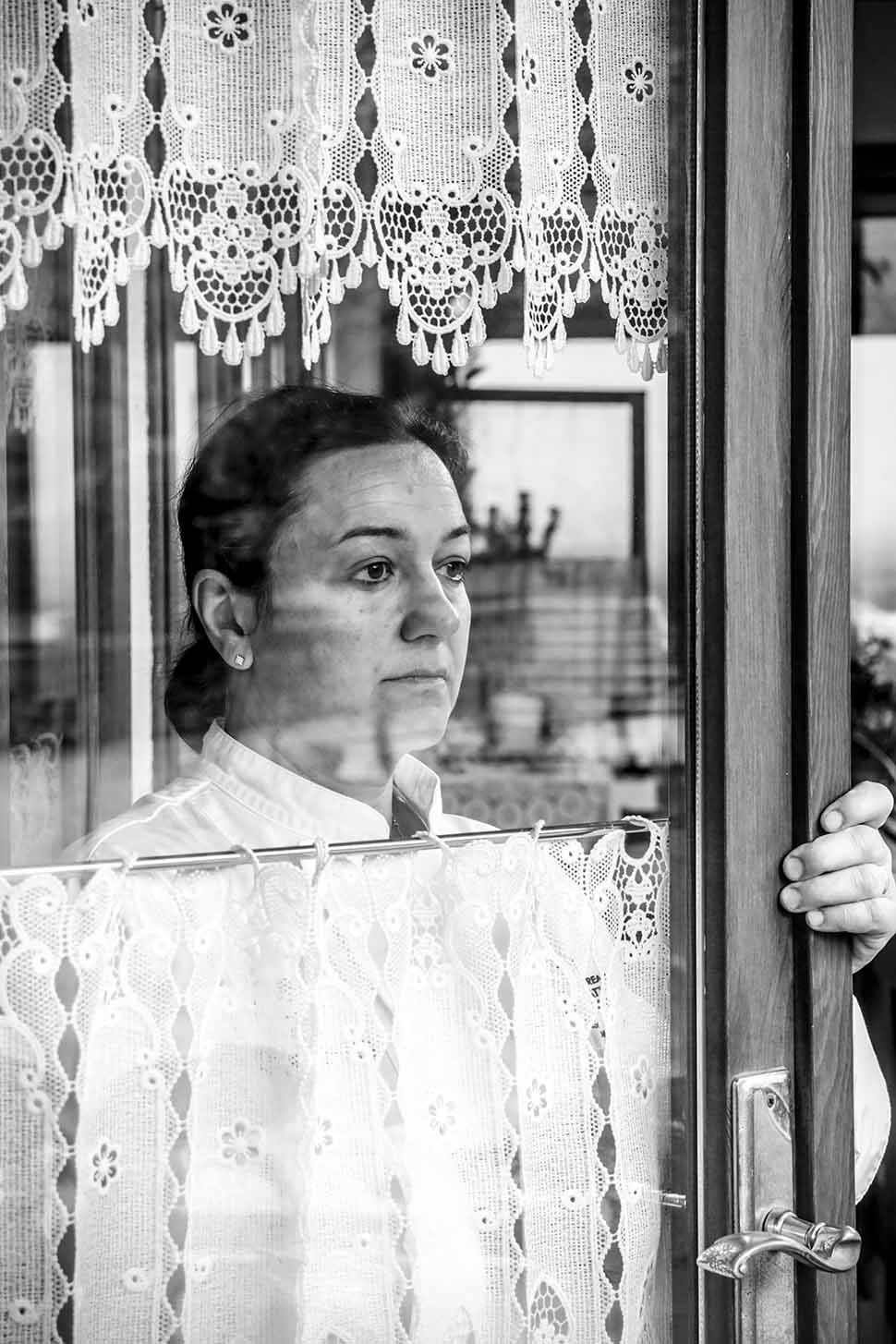
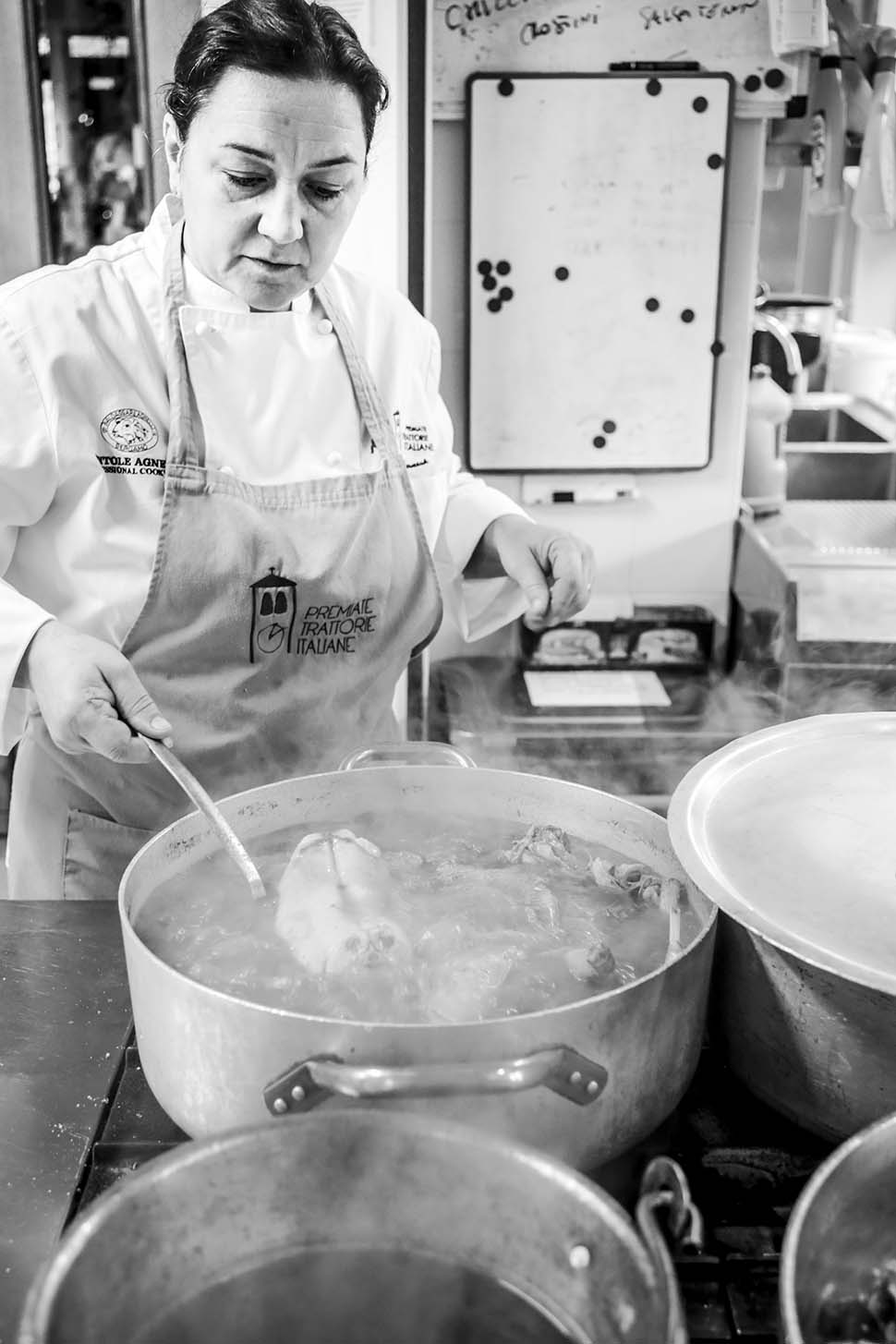
There was also time for a commercial venture, thwarted by Uštili's father. "We had always been a tavern with typical dishes, from gnocchi to goulash; we worked on Saturdays and Sundays. Then, during my military service in Aviano, I stumbled upon a couple of pubs and fell in love. So, I changed everything; we had 150 bottled beers and 5 or 6 taps, the young people flocked in, and we earned a lot, but families were limited. So, one day, my father said, 'I don't like it, if you want, you can close this down.' Fortunately, I found the woman of my dreams and returned to the old trattoria, with some modifications," he says.
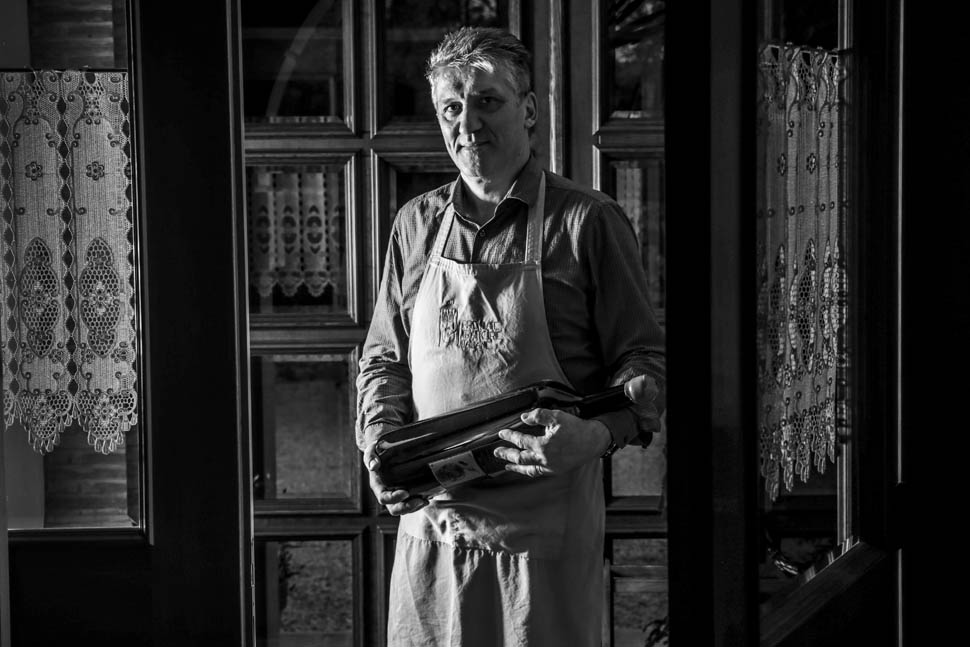
Today, Uštili runs it with his four daughters: Sara manages the farm along with an educational farm, transitioning to biodynamic practices, supplying vegetables, cured meats, and honey. Tatjana, Tjaša, and Mihaela share duties in the dining hall, cellar, and kitchen. Together, they've achieved significant milestones: the MICHELIN Guide awarded them the special "Passion for Wine" prize in 2019, and in 2023, a well-deserved green star, "the cherry on top."
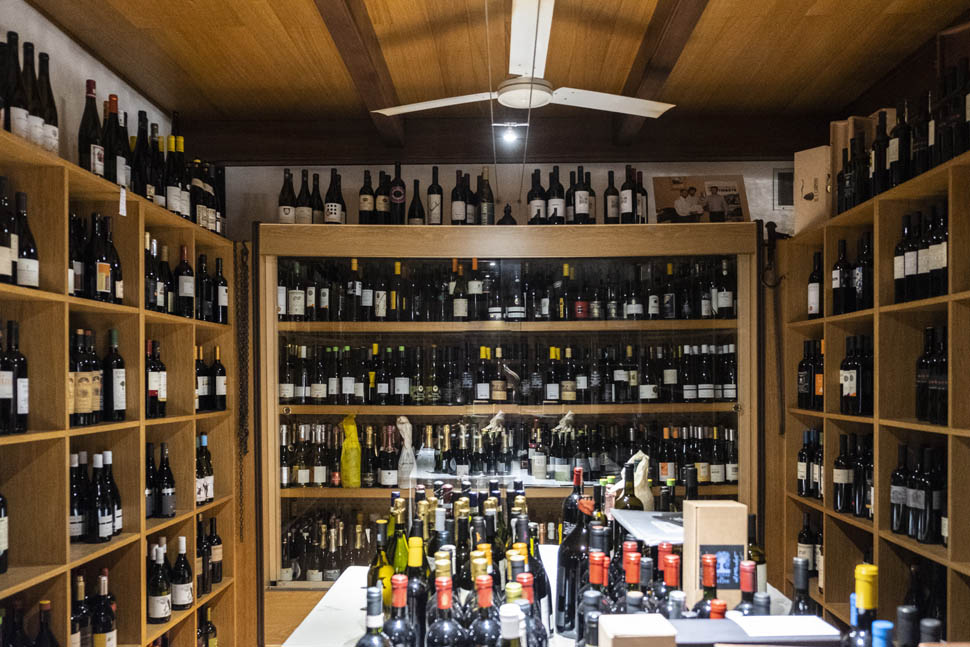
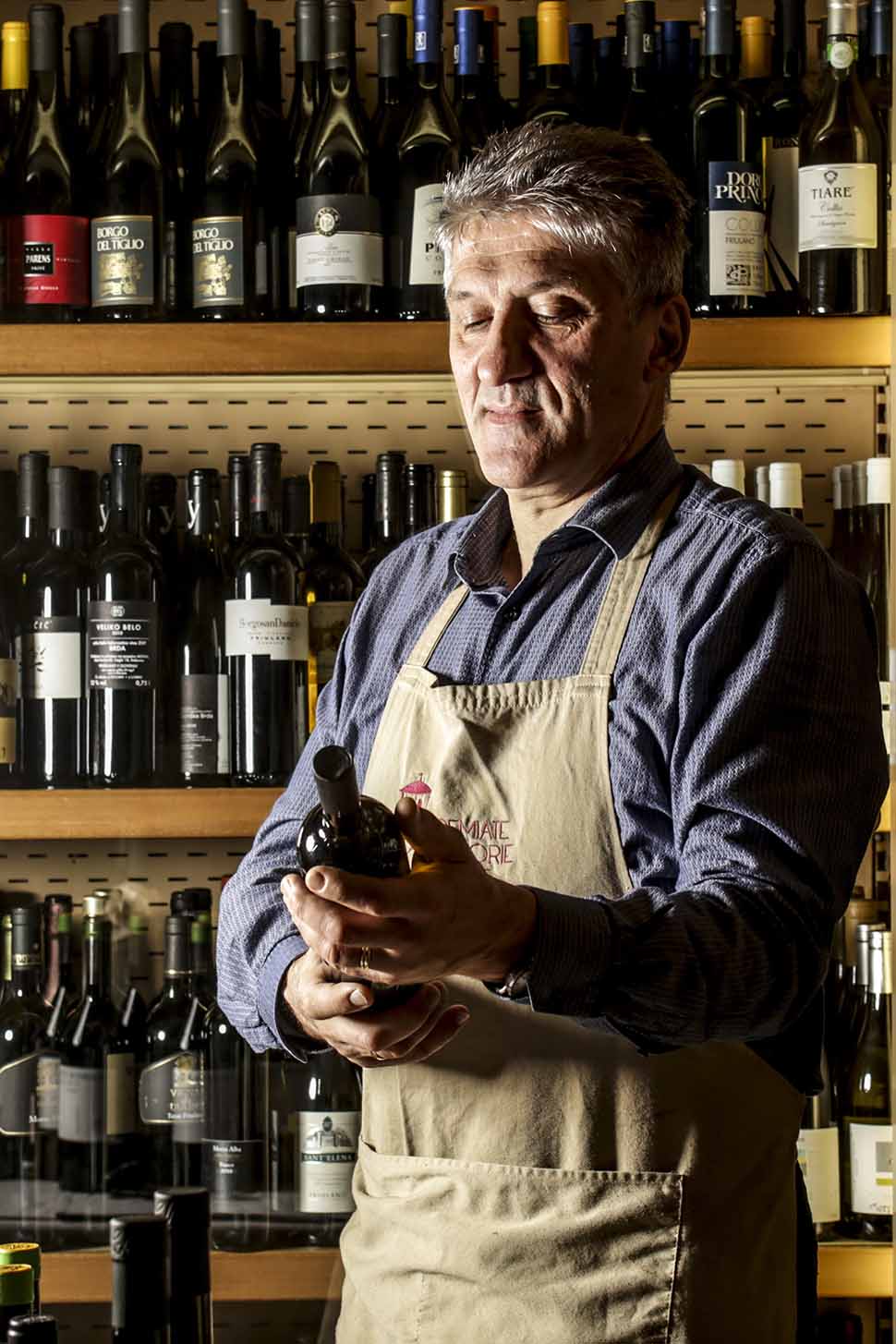
The cuisine
The cuisine has two facets: that of historical Karstic dishes, humble yet moving due to layers of stories, wisdom, family and collective memories, and that of Gabriella's measured creativity. Gabriella, a self-taught cook, immediately offered something different to cater to the locals who enjoy "selinka" even at home. The common denominators are territoriality and sustainability, always practiced and finally recognized, with prices that have remained affordable.
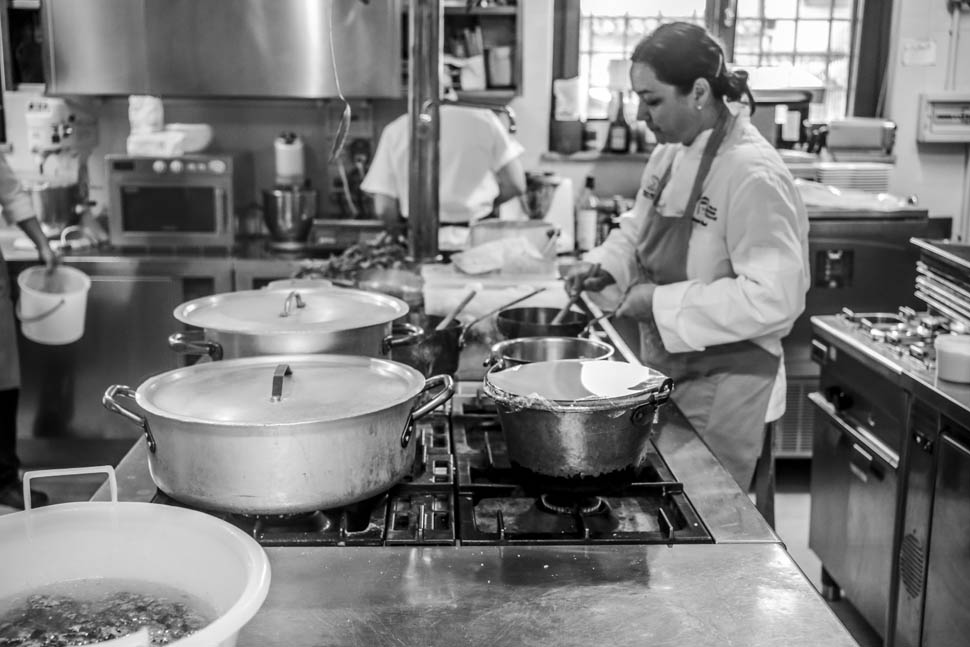
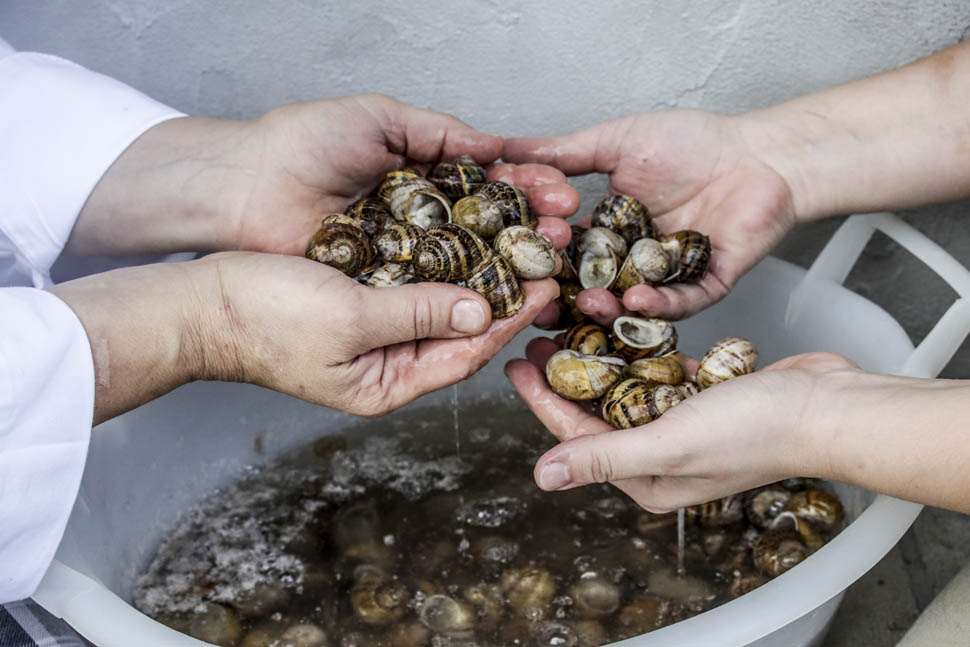
The wine cellar is extraordinary, offering an extensive collection of 3500 references and 13,000 bottles, attesting to the renaissance of the region. "When I started working here, there was practically only Collio; the Karst was relatively unknown. But in Piedmont, I had seen trattorias that were very successful, and I understood that we needed to promote our wines. So, I worked with Friulian and Slovenian producers, immediately focusing on the glass." The cellar alone would make star-rated establishments envious for the day, but going down, you discover the vault of wonders, carved into the rock by the Devetak family.
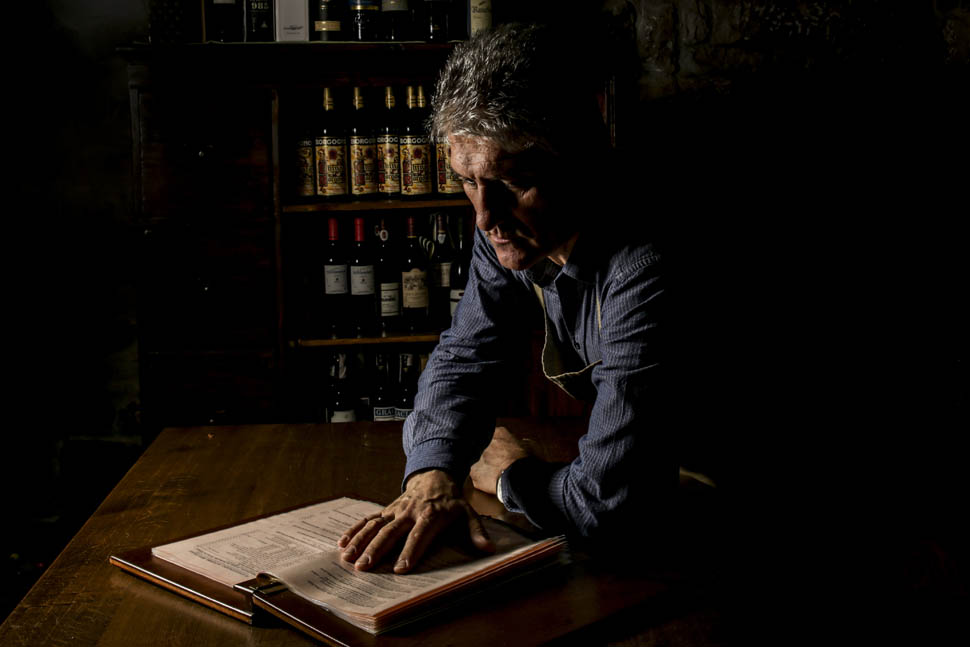
There's the history of the Karst in the "brodo brustolà," a typical Lenten soup made of toasted bread and egg, accompanied by Gabriella's smoked herring-soaked bread, another lean dish popular in Slovenia. A family recipe, drawing one into the poetry of a new clog tree. While the leavened pasta dumplings ("snidjeno"), a Czech-origin specialty, are no longer boiled in a cloth after rising, but steamed for more lightness before being dressed with rabbit ragù and smoked Carnic ricotta.
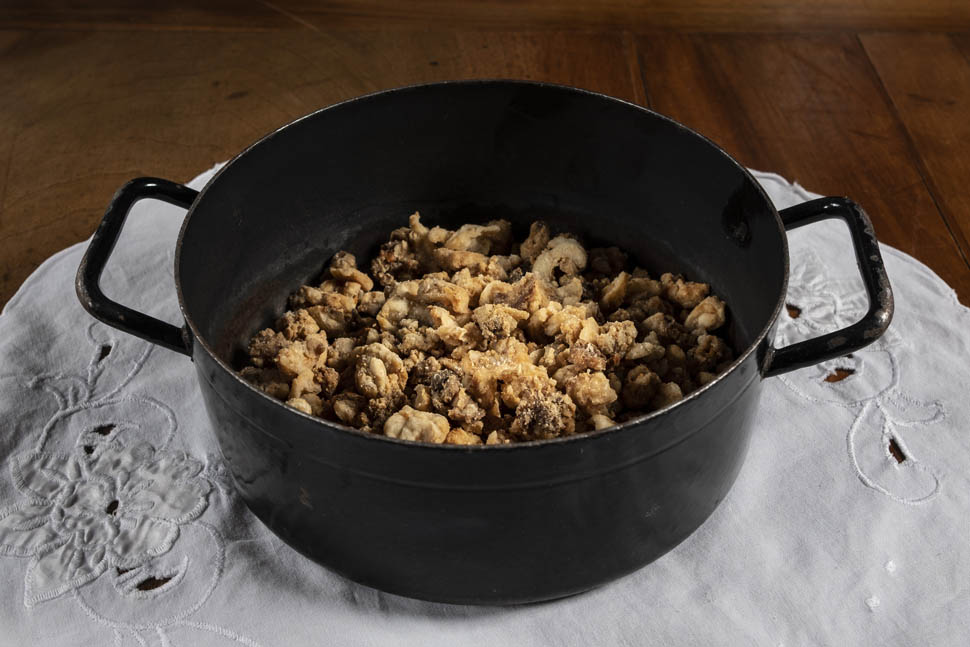
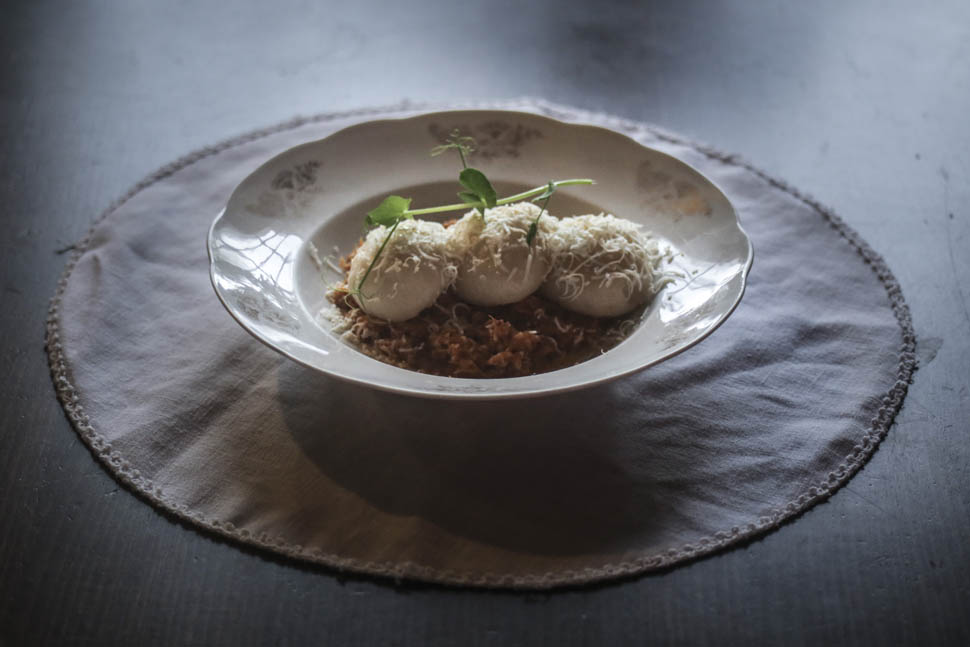
The same chicken’s "supeta", a typical festive recipe, is paired by Gabriella with creative pasta like tagliolini made from the yellow Ribolla Gialla Macino® grape residue flour or "palacinke," a kind of local crepe.
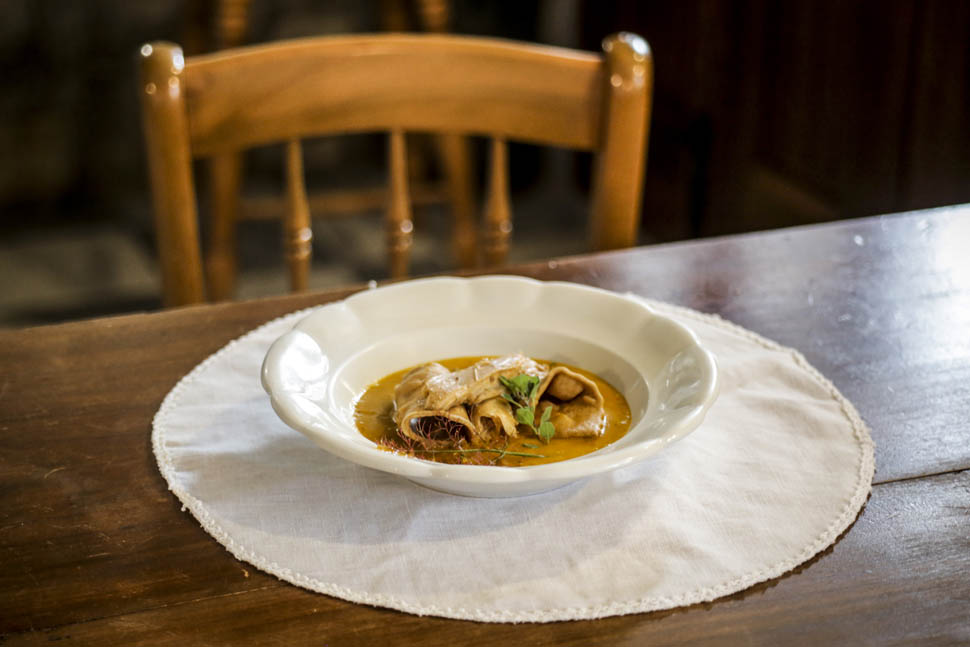
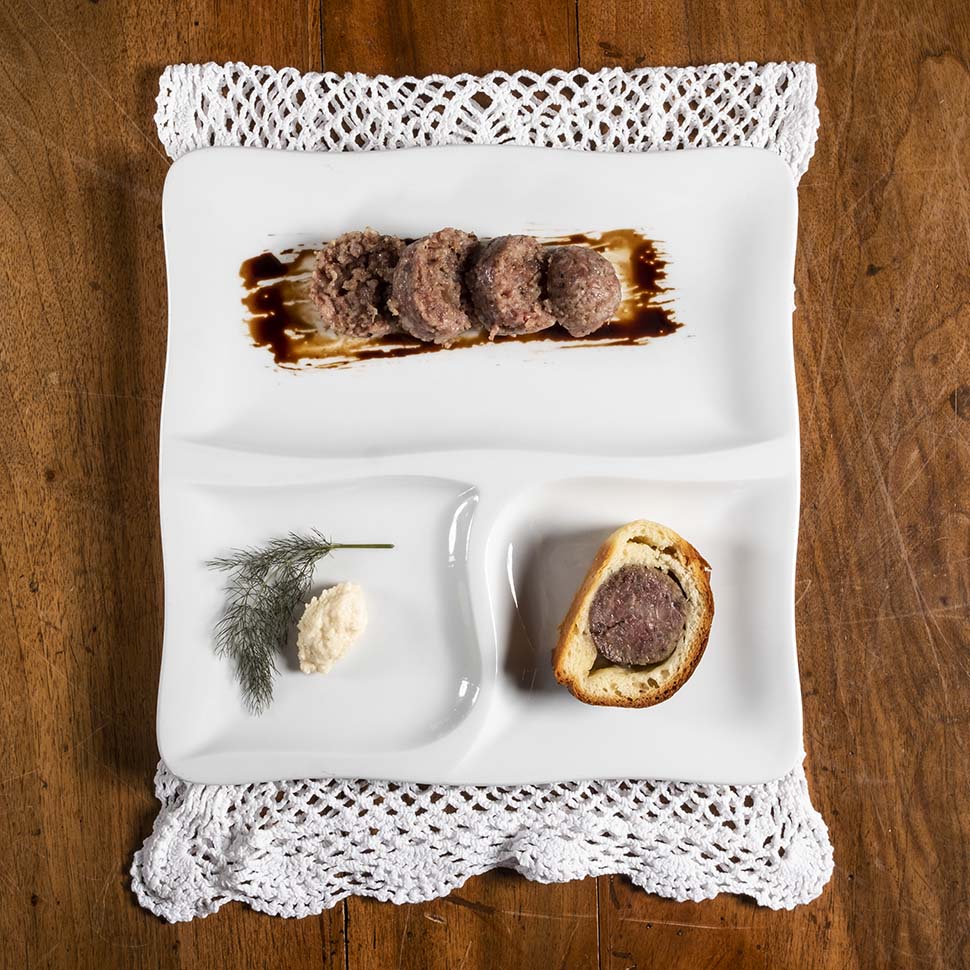
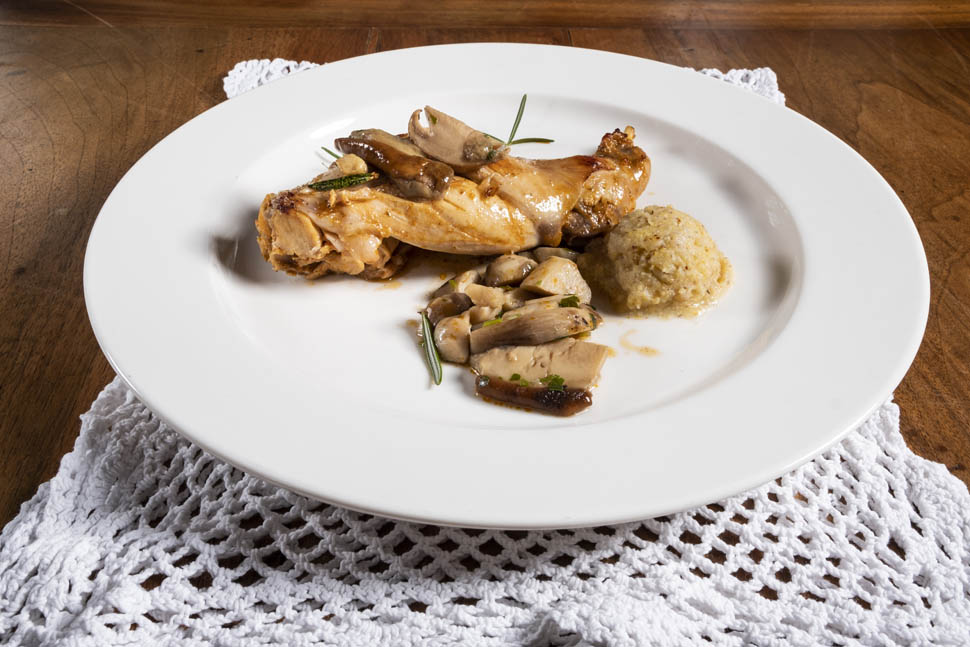
The first dish served in the old cobbler's tavern, however, was Grandma Žuta's "stoccafisso" (salted cod) with anchovies, polenta, and Parmesan. As a closing note, there's the "Coppa del Vetturino," a precursor to the coffee-less tiramisu with a secret composition, offered in collaboration with the Cosolo family, and the "buhtelni" with saba jam, a Danubio-style dessert, paired with a superb Marsala from the 1970s and a Friulian Verduzzo.
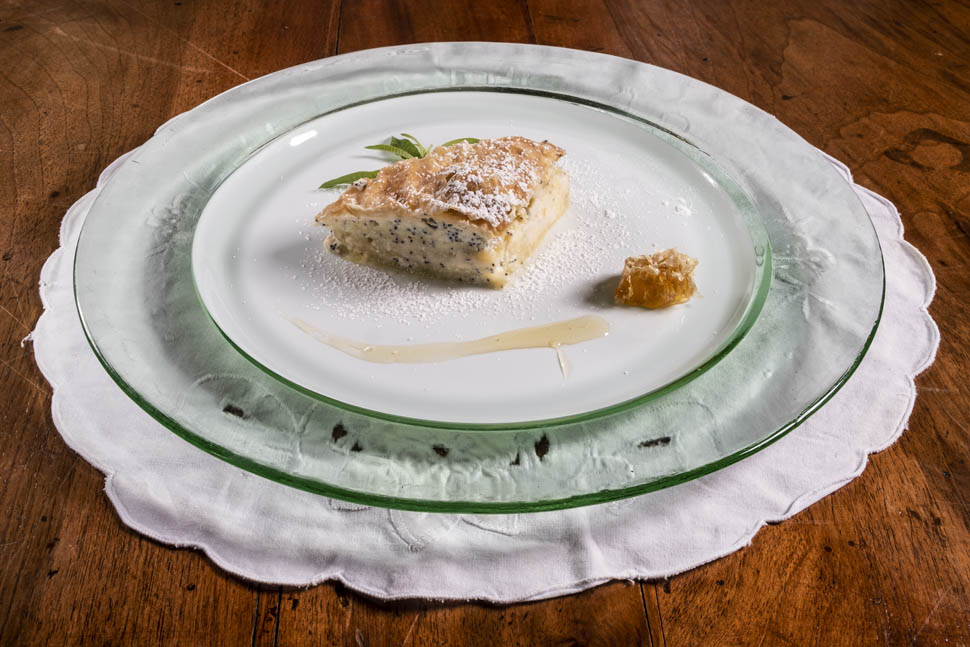
Address
Lokanda Devetak
Via, Brežiči, 22, 34070 San Michele del Carso GO
Tel: 0481 882488
